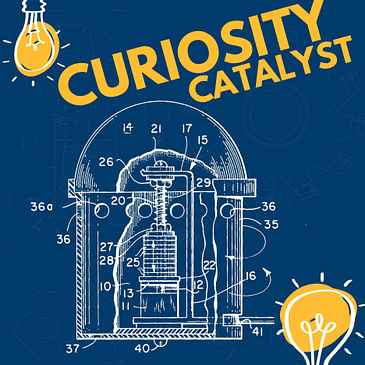Background on the Invention:
In certain areas of the country where dry climatic conditions prevail, sprinkling and irrigating systems are generally maintained for prolonged periods of time. Obviously, however, means are required for automatically closing down said systems when there is rainfall or when moisture conditions in the atmosphere are excessive. Also, upon completion of the rainfall, automatic reopening of the sprinkling system is desired. Moisture-responsive actuators have been known to operate in response to the weight of rainfall captured in a receptacle attached thereto or in response to certain types of moisture absorptive mechanisms associated therewith. Also, ground sensors and probes have been used. However, such devices have proven to be inefficient, of short life, and relatively costly to manufacture.
Can you guess what the Patent is?
I'll give you a moment to think.
Let me repeat the first sentence: In certain areas of the country where dry climatic conditions prevail, sprinkling and irrigating systems are generally maintained for prolonged periods of time. Obviously, however, means are required for automatically closing down said systems when there is rainfall or when moisture conditions in the atmosphere are excessive.
Can you guess?
RAIN SENSOR. Although for the purpose of a Patent, the name is, MOISTURE RESPONSIVE SWITCH ACTUATOR.
Why am I mentioning this to you?
Because this patent was issued on August 11, 1972
We are still using a device that supposedly makes an irrigation controller, "SMART", that was invented in 1972.
Now I'd like to read you the Patent Abstract to add a bit of clarity.
Patent Abstract:
A moisture-responsive actuator is employed for controlling the operation of a fluid-operated sprinkling or irrigating system or the like. The moisture-responsive actuator is provided with hygroscopic material which expands in response to contact with rainwater to de-press a switch to deactivate the sprinkling system, the hygroscopic material contracting upon a drying thereof to release said switch whereupon the sprinkling system is activated.
WHY?
Why are we still using this technology?
I don't have an answer, I'm simply offering you the opportunity to ask.
It is thisexample fo Curiosity, that may lead you to your next big breakthrough. The breakthrough can be anything, not necessarilty a product invention. It could be a new way of doing something in your business, and new way of organizing something in your home.
It is the act of being Curious, to question things, to ask why, the evokes change and growth.
With this in mind, I'd like to propose that Curiosity is a Catalyst for Innovation.
Curiosity as a catalyst for innovation highlights impact of asking "What if?" and "Why not?" "I wonder what would happen if.."
This mindset has the potential to propel us beyond accepted norms, challenging us to reimagine possibilities. Curiosity can breakdown barriers to innovation, urging us to explore the unknown and question the status quo.
It's a reminder that the pursuit of knowledge is endless, and it's through this curious mindset that it becomes possible to uncover new paths to progress and solutions to our most complex problems.
Like, why are we still using a Rain Sensor that was invented in 1972, and doesn't actually "SENSE" the rain?
It is actually more like a Sponge/Switch. When the sponge is wet, it swells, and trips the switch.
Yet, every manufacture today still uses it.
Yes, My own curiosity kicked in and I do have a new apporach to this, but I'm not going to share it with you today. You'll need to come to my keynote speech next week in Ontario Canada to find out..
My final thought for today is on the potential to nurture a world that is continuously evolving and enhancing, and that embracing curiosity unlocks limitless opportunities, showing that the pursuit of knowledge and the bravery to question are fundamental to progress and, even, human advancement





